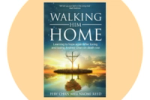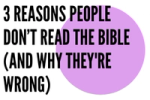Christianity in Action interview - part two
Simon Cross
In the second part of our interview with Author and radical communitarian Tobias Jones, we ask why a woodland - and what about the safety of his children? [Read part one here] So after all his experiences, what led him to choose a woodland shelter, rather than a farm (like Pilsdon) or some other form of community expression?

Author Tobias Jones has set up a woodland shelter, but is it a safe place for his children?
"We wanted to run a woodland shelter for various reasons. I've milked cows at the crack of dawn and trees suddenly seemed very attractive.
“There are fewer vets' bills in a woodland operation, fewer animal emergencies. A woodland is more aesthetic than an open field, I think.
“Also, being an Anglo-Italian family we often go back to Italy, and it's easier to leave trees than a herd of cows.
“That said, we do have ten pigs, a dozen chickens and two beehives, so going away is not that easy.
“Also, I've long thought that creative manual labour - not just chopping wood but carpentry, wood-turning and so on - plays a huge part in recovery, and we wanted to have a ready supply of our own wood.
“We make chairs, tables, benches, handles and so on here, and the pride of peoples' faces when they've successfully used the pole lathe or the shave horse is wonderful.”
What about the children?
One of the key questions, or criticisms of this kind of lifestyle choice, has to do with children – is it really a responsible or safe way to bring up young children, in the midst of chaotic and damaged individuals?
“I would say that our children, certainly the older two; they're 7, 5 and 2, probably know more about bereavement, addiction, sorrow and so on, than most teenagers on the cusp of adulthood.
“You might say that's not a good thing, but they're growing up surrounded by the back-end of addiction, learning about drink and drugs and death in the most healthy place and in the most mature way.
“They're having meals every day with people who talk openly about what they're going through. They're non-judgemental, they're kind and sensitive.
Our children... probably know more about bereavement, addiction, sorrow and so on, than most teenagers on the cusp of adulthood.
“They know we always lay an extra place at the table because someone might turn up. They understand radical hospitality. That, to me, is a far better lesson that much of what passes for Sunday school.
“And, as those deeper lessons sink in, they find there's a man with no teeth who'll teach them a great card game; there's a man with a huge beard who'll teach them the harmonica; a woman turns up and teaches them a little bit of Hebrew; another Welsh; someone encourages them to learn a new recipe or introduces them to a new pet.
“Their horizons are exponentially expanding and their lives are greatly enriched. It's true, of course, that our only real worry about doing what we're doing is the welfare of the kids.
“We're phlegmatic about theft and dishonesty and lack of sleep, but we're very protective of our children. But because we're explicit that this is our family home, guests appreciate that noisy, boisterous, whiney children are part of the package, and they usually treasure them.”
In it for the long run?
In the long term though, is this really a sustainable way to live as a family, can he foresee this being life for the long term?
“Possibly. Possibly not. I don't know. It is exhausting. I often get up at 4 or 5 am. to start the day job simply because that's the only time I can get some peace and quiet.
“It is often gruelling dealing with three children and five quite troubled adults. A former warden at Pilsdon once came up with the eloquent line that Pilsdon is about "sustainable vulnerability" - about being always vulnerable, but not so vulnerable that obliteration is a danger.
We've come close to collapse a few times
“We've come close to collapse a few times, physically and emotionally, but are blessed by wonderful volunteers and supporters and a very wise bunch of "consiglieri" [counsellors or advisors] on our management committee.
“Since we're going back to live in Italy at some point in the future, it may be that that will be the time to pass the baton of woodland warden on to someone else.”
Tobias Jones is the author of ‘The Dark Heart of Italy’ a bestseller about life in contemporary Italy; Utopian Dreams and Blood on the Altar, a book about a real life murder investigation. He’s also written two crime novels; with another due to be published in the spring of 2013. All are published by Faber & Faber.
REQUIRES LINK BACK TO PART 1
Latest Blogs

Bible
Choosing The Right Bible
With more than 20 English Language translations each available in 25 or more different editions the choice of Bibles excites and bewilders. Choosing the right Bible for you is important - even if you already have more than one.

Spiritual Growth
LENT COURSES - How to choose the right one for you
Long overshadowed by the celebrations of Easter Sunday, Lent is being rediscovered as a sacred time of reflection and renewal in its own right and a time of preparation for the joyous seasonal finale.

Featured
Stocking Fillers
Here’s our pick of the top 3 Stocking Fillers this Christmas. You can find even more at our Christmas Store.

News
Where to Watch the New C.S. Lewis Film
Heading to a screen near you soon, The Most Reluctant Convert is a feature-length movie about the life and faith of one of England’s greatest Christian writers and thinkers: C.S. Lewis.

Interview
Author Interview with Feby Chan and Naomi Reed
Feby tells her compelling story in her book Walking Him Home. After wrestling with grief and suffering, she shares how God’s healing and faithfulness is enabling her to step into her new life and ministry.

Featured
3 Reasons People Don’t Read the Bible
We are currently in a strange situation. Bible sales are up, but the number of people reading the Bible is going down. Even stranger, this situation is nothing new. There has always been a difference between the number of people who own a Bible and the number of people who regularly read their Bibles.
